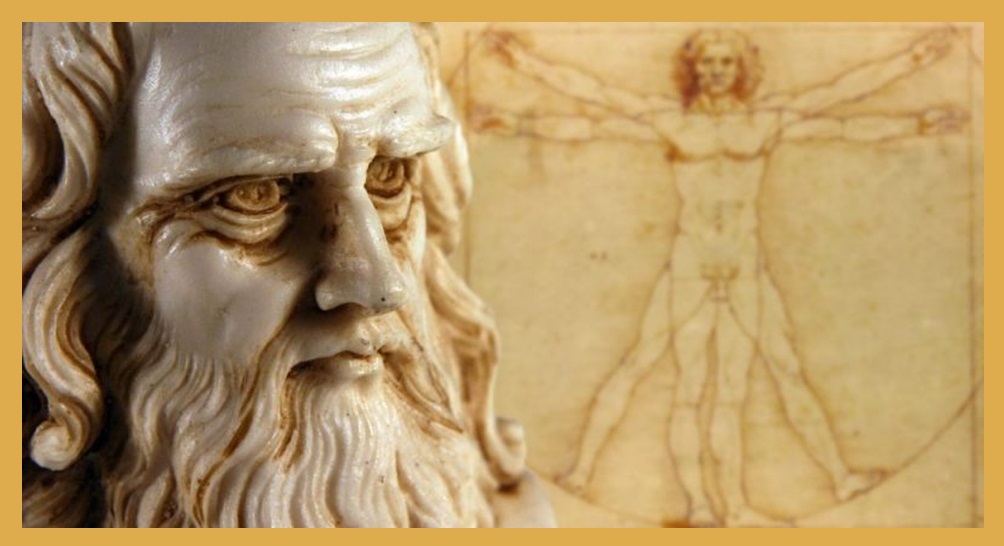El Atheism It is a philosophical current that is opposed to the belief that God exists, therefore it denies in the same way the existence of Christ. Find out below what the other arguments are and more information about this trend.

atheism
The most generic definition of atheism is that ideological thought that denies the existence of any deity or God. It means that this philosophy discards any ideological doctrine with belief in one or more gods, such as the Christian, Jewish, Muslim, Buddhist, Hindu, etc. Atheists defend the thesis that the universe and humanity are products of a big explosion, or of evolution, ruling out the fact of the existence of a God who created the universe, who also intercedes in its evolution regardless of religion. . In other words, one of the arguments used by atheists is that they cannot prove the existence of a God who controls the earth and the entire universe.
The qualification of atheist was the way since ancient times to denominate those people who refuted the deities that their societies worshiped. All these people began to emerge as a result of movements of skeptical groups that established scientific reasoning and free thought of deep criticism of religions.
At first such denomination was used in a derogatory way by the believers of deities. But from the emergence of the intellectual and cultural movement that occurred mainly in Germany, France and England, in the middle of the 18th century, known as The Enlightenment, its followers began to call themselves atheists.
This intellectual and cultural movement brought about the momentous event in history known as the French Revolution. Highlighting in it mainly its principles based on atheism, and where a policy that defended humanism or human reason over anything else was imposed.
Atheism alludes to a series of arguments that range from philosophical, historical, social considerations, the lack of empiricism or scientific verification, the existence of evil, not believing, among others. But, although atheists have common characteristics such as human reasoning and skepticism, they do not all pursue a single philosophy, ideology or behavior.
Etymological origin
Atheism is the expression that groups people considered or who consider themselves atheists. As for the word atheist, it has its etymological origin in the Greek root αθεοι, transliterated as atheoi and translated into Latin as athĕus. From athĕus, the prefix a denotes without and thĕus means god, so the word atheist expresses or indicates someone without god.
Specifically the Greek term αθεοι or atheoi is the one found in papyrus 46, from Paul's letter to the Ephesians, which dates from the beginning of the 3rd century after Christ,
Ephesians 2: 12 (RVR 1960): 12 At that time you were without Christ, alienated from the citizenship of Israel and alien to the covenants of the promise, without hope and without God worldwide.
In fact, the Bible does not properly speak of atheism, but it does speak of people who do not have God.
in ancient greece
In primitive ancient Greece the epithet atheoi or a-theos, referred to or expressed that they were without god or without gods. Being used in a first opportunity as an accusing qualifier. By the fifth century BC, the word a-theos referred to people who did not worship deities, thus denying the power of the gods of Greek culture.
Later, the Greek word ἀσεβής or asebēs began to be used as a description of those who blasphemed by disrespecting the established gods, going on to believe in another God or other deities.
The Roman consul, philosopher, writer and orator Cicero (106 – 43 BC) takes the Greek term ἀθεότης or atheotēs to the Latin atheism as a word related to atheo or atheist
in the christian era
In Jesus' time, atheism referred to those who opposed the cults of the Greek and Roman deities. In the same way it happened with those who did not believe in the God of the people of Israel, in all cases it was done in a derogatory or pejorative way. So curiously, at the time of Jesus the first Christians were considered atheists. Both for the Hellenistic culture and for the Roman one, for believing in a single God, Jehovah God, and not in all the Greek and/or Roman deities.
In fact, in the first century, power was exercised by the Roman Empire in all of Palestine. Because the inhabitants had to worship the Emperor of Rome or Caesar in the same way as their gods and anyone who did not was considered an atheist.
Learn more about these companies in the article map of Palestine at the time of Jesus. Regions such as Galilee, the Jordan River, Samaria, and Judea are related to this map. Discover in it aspects about the political organization, theological doctrines, social groups and much more of those times.
The name in English
The word atheist was translated into English as atheist from the French translation athée, to denote the person who opposes the existence of God or gods. Just as atheism originates from the French term athéisme, relative to the lack of religiosity. Historical records of these terms can be found dating from years between 1566 and 1587 after Christ.
By the year 1534 the English term atheonism was used relative to atheonism, later related English words emerged, such as:
-Deist in 1621, which translates as deist
-Theist in 1662, which translates as Theist
-Deism or deism in 1675
-Theism or theism in 1678
The comparative religion specialist and British writer Karen Armstrong says that between the 16th and 17th centuries the term atheist was the cause of great controversy, about which she wrote:
"The term 'atheist' was an insult. No one would have dreamed of calling himself an atheist."
Even in the middle of the 17th century it was no reason that someone could not believe in God. Considering them crazy and pejoratively called atheists.
The origin of the use of the term atheism as the declaration of an ideology or belief, arises in the last decade of the 18th century, which was positioned against the Abrahamic monotheistic religions.
In the world of XNUMXth century globalization, it favored the growth of atheism, as a term used to go against any deity. Being very common in Western nations to refer to atheism as a denomination that indicates not believing in Jehovah, the God of the patriarch Abraham and of all Christians.
atheism in history
In order to understand a topic as controversial as atheism, it is essential to go to history. Above all to be able to understand why the XNUMXth century was the century that gained more adherents to atheism. A century that stood out for being the period where the largest number of scientific discoveries occurred. Surpassing the previous centuries in terms of science and representing the great leap in terms of technological advances.
Delving into the history of atheism is to delve into the philosophical currents that were its bases or arguments, in addition to being able to deeply understand the nature of the heart of the human being.
Renaissance era
The Renaissance era was a period that lived in Western Europe between the fourteenth and sixteenth centuries, after the Middle Ages and predecessor of the modern era. The renaissance name of this era was given in the XNUMXth century, to signify the rebirth of the ideas of humanism, as a vindication of some aspects of classical Greek and Roman culture.
Representing in a certain way the return of certain values of the Greco-Roman culture and the observance of the free and natural thought of man, after centuries where a more disciplined and dogmatic mentality prevailed that had developed in medieval Europe.
Therefore, an era is reborn in Europe that had revolutionary connotations for three centuries and whose consequences were strongly felt in the modern era, specifically in the XNUMXth century.
The golden age of Greek philosophy was left behind during the Middle Ages, flourishing again with the Renaissance. With this, art emerges again, the culture of those times. But above all the philosophy of empiricism and humanism is reborn. Empiricism is based on the theory that it is only possible to know reality with absolute certainty through experience. In other words, it is not possible to believe in something that cannot be seen, heard, tasted or perceived through the senses. The philosophy of empiricism came to the fore strongly during this time.
The concept of humanism
Subsequently, the concept of humanism began to be promoted and gained strength. A concept strongly defended by Greek philosophers such as Epicurus of Samos, founder leader of the Epicureans, and Aristotle, who, like Plato, is considered the father of Western philosophy.
These two Greek philosophers established that the human being was independent and self-sufficient. That man only needed the search for knowledge in order to understand his environment and his universe. The thoughts of the humanistic culture of the Renaissance era were based on the following expressions:
-Man is the measure of everything
-For the development or evolution of the world, only the human being is enough
-Man does not need anything spiritual at all, nor does he need to delve into any mystery.
-Humanity does not need the spiritual to solve its problems
-Man is capable of delving philosophically into his origin, identity and his future
René Descartes
At the end of the 16th century, a man who was later considered the father of modern philosophy, René Descartes, was born in France. This French philosopher, mathematician and physicist followed the teachings of the school of recent times of Aristotelianism and the Greco-Roman school founded by Zeno of Citium, Stoicism, as well as medieval philosophers such as Saint Augustine.
René Descartes, in his natural philosophical current, was adamantly opposed to the subject of divinity, he established that the phenomena of nature were due to simply mechanical or involuntary causes. He therefore denied God's act of creation. Although he departed from preceding philosophical schools, Descartes outlined his own opinion of them. For example, he contradicted the Aristotelian school by affirming the existence of two different and substantial phenomena in the same person, the soul and the body. The most popular expression of the father of modern philosophy was: -I think, therefore I am-. This man established the principles of modern rationalism of the 17th century, defined in the following conception: Reason is the only source of knowledge and therefore sufficient to solve any problem of the human being that is related to nature and its future.
So it is easy to see that from Descartes in the first half of the seventeenth century, internal reason began to focus on the ego, on the self of man.
Kant's Empiricism and Rationalism
Later, for the second half of the XNUMXth century, the philosophy of Immanuel Kant emerged. This man born in Prussia, now Russia, was a forerunner in Germany of criticism and German idealism. Kant established a link between the empiricism of the Greeks and the rationalism of Descartes, he accepted that the knowledge of man began through experience, but that human reason also had an important role.
At a time when skepticism was accentuated in Germany, Kant wrote one of his most outstanding texts, called "the Critique of Pure Reason". Text that represented a change of direction in the history of philosophy and where Kant wrote: -Knowledge is centered on man, not on God-.
Denying at the same time that God did not exist and began to link empiricism with human rationalism, as well as with atheism. Kant's philosophical approach gave rise to Hegelian atheism.
Hegelian atheism
The Hegelian surname comes from Georg Hegel, a very prominent philosopher from the era of XNUMXth-century German idealism and philosophical modernism. Hegel went further than Kant in defending a thesis that established the relationship between man's individual reasoning and the unpredictable events that occurred to him, and whose matter could only be grasped after experience. Becoming a historical, collective and provident reasoning, hence Hegel's characteristic expression: -The cunning of reason-
Hegel is considered by classical philosophy as a revolutionary of reasoning, who would later exert a profound influence on the materialism of Karl Marx. Because Hegel's most important philosophical statement was: -The universal domain is found in the State, because the State is the divine conception as it exists on earth. Therefore, man must revere the State for being the manifestation of the divine on earth, the State is the path of God in time.
Both Hegel and Marx used teleological historicism to ground their political philosophies. Hegel's work or thought was a great source of interest for many dictators of the XNUMXth century, generating a series of revolutionary movements, beginning with the movement of Marxist materialism in the XNUMXth century.
Karl Marx and his XNUMXth century Marxist materialism
Karl Marx was a German philosopher and supporter of communism of Jewish origin. As a child he was educated in the Jewish religion, as a young man he knows his closest collaborator, Friedrich Engels. With which he co-authored the Manifesto of the Communist Party, Marx thus converted to atheism.
These two men initiate and lead revolutionary workers' movements against the bourgeoisie, which was the social class that ruled in those times.
One of the communist principles established in the Marx-Engels manifesto was that of the abolition of all religions and that the only morality was that established by the communist state. Later Karl Marx writes another of his masterpieces, Capital, which spread throughout Europe and later to the world.
The central idea of Marx's philosophical thought was that the universe was closed and that there was no God. Therefore everything that happened in the universe had the natural explanation of it. In contrast to Hegel's idealistic reasoning, Marx develops materialism. Establishing that the economic strength of society is what moves man.
The final days before Marx's death are very ill with lung injuries, in addition to being submerged in a deep depression. Karl Marx died on March 14, 1883 at the age of 64. Men like Hegel and Marx began to penetrate the thinking of political leaders of the XNUMXth century, one of these being the rise of Vladimir Lenin.
The atheism of Vladimir Lenin
In 1870, in the history of atheism, one of the most relevant atheists of the 1917th century was born, the leader of the Russian Soviet Union, Vladimir Lenin. Born in the Russian Empire, Lenin lived through a youth exploited by a capitalist system that hardened him and fueled hatred. Already tired of working, he led the Bolshevik revolutionary movement in the Russian revolution of 1918. In XNUMX, Lenin became the head of the Government of the Russian Soviet Union. be unproductive idiots.
In the same way, it closes churches and cathedrals in the country, some are destroyed and many others are transformed into museums for the cause of communism. In Russia it is forbidden to speak of God in schools and universities, anyone who refused to abandon his faith in God is taken prisoner. Being taken to psychiatric prisons or concentration camps, others were simply killed. When Lenin died due to a cerebral hemorrhage in 1924, another atheist leader Joseph Stalin emerged.
Joseph Stalin's atheism
After the death of Lenin, the Leninist movement gave rise to various ideological currents such as Marxism-Leninism. Stalin fought like Lenin for the power of the Russian Soviet Union, in the same way he declared himself as one of the most faithful followers of Marx and Lenin.
Stalin's revolutionary ideas began when he was studying at the Orthodox seminary in Tbilisi, Georgia. Becoming an atheist for not finding in the seminar the answers that according to him he was looking for.
Stalin was one of the main leaders of the Russian Soviet Union and exercised his power from the position of General Secretary. Power that allows him to impose the ideas of Hegel, Marx and Lenin, in a single year he manages to edit and produce 15 million copies of texts with atheist content. As well as imprisoning more than 18 million people and murdering another 10 million, just for believing in God.
Stalin died in 1953, but in 1949 another revolutionary and communist dictator named Mao Tse Tung had emerged in China. With whom Stalin had made good relations.
mao tse tung
Mao Tse Tung founds the Central Government of the People's Republic of China, he considered himself an atheist. By establishing his government, he in power he expels all the believers of God, the missionaries. He orders to destroy and burn all the churches, Christians begin to suffer persecution in China. With Mao Tse Tung, approximately 25 people died cruelly every month. Well, this dictator said that the only way to spread the Marxist revolution more quickly was by assassinating those who believed in God.
The end of Mao Tse Tung's life was characterized by a sick mind, with paranoia and schizophrenia. The Chinese dictator died on September 9, 1976 at the age of 82 from a heart attack.
After the death of Mao Tse Tung and after all this philosophy seen before, it can be perceived and in fact in the minds of many university thinkers, they have come to reflect in a colder way; in how atheism has contributed to the greatest bloodshed that the history of humanity has been able to know, and it was the one that occurred throughout the XNUMXth century.

Marx, Engels, Lenin, Stalin and Mao, the main ideologues of state atheism
Definitions and types of atheists
The fact that atheism can be understood or defined in different ways is part of the difficulty of establishing the same concept for terms such as deity, God and gods. Different conceptions of God lead to different ideologies or dogmas. Even in the early years of the Christian era, Christians were persecuted by the Romans, accusing them of being atheists or practicing atheism for the blasphemy of not worshiping their pagan gods and worshiping Christ.
With the passing of time, the term theism began to be considered to encompass the belief of any divinity.
Therefore, if the: a-theism, is the denial of divinity, it can refer to the rejection or opposition to the existence of any deity, supernatural phenomena or other spiritual conception, such as Buddhism, Hinduism or Taoism. Here are some definitions of atheism and types of atheists
Implicit vs Explicit Atheism
The concept of atheism can then vary according to the idea or thought that a person may have about the deity to qualify as an atheist. Atheism can simply mean a lack of belief that any deity can exist. In this definition, all those people who have not been in contact or have not been told about theistic or religious thoughts would be classified as atheists.
Atheist writer and author of the book The Case Against God, George H. Smith, established the concept of implicit atheism; to refer to atheists who were not aware of establishing a theistic rejection. In other words, the implicit atheist is the person who lacks some theistic belief, according to this author. In the same way, Smith conceptualizes explicit atheism to qualify the atheist with a conscious disbelief.
For his part, the American philosopher Ernest Nagel, after the conceptualization established by Smith. He disregarded Smith's concept of implicit atheism, simply defining it as the absence of theism, thus considering one and only true atheism, the one Smith calls explicit atheism.
Positive Atheism vs. Negative
Antony Flew and Michael Martin, both philosophers and advocates of atheism, promoted the concepts of positive atheism and negative atheism, more recently called strong and weak respectively. Positive atheism was defined as the conscious declaration that deities do not exist. As for negative atheism, it encompassed all other non-theistic types.
practical atheism
Practical atheism is defined from the way people act regardless of whether or not they believe in the existence of deity. In other words, they live their lives as if there were no God, they can even justify events in nature without attributing them to themselves or making reference to any divine presence.
For this type of atheism, although they do not necessarily manifest the denial of God or any other god, for them it is simply unnecessary to do so or not, because it does not influence anything in their way or way of leading their lives. Practical atheism can then take different forms or attitudes:
-Religious demotivation or reluctance: Believing in God does not necessarily impel a person to morality, a religious life or another type of action.
-Active rejection of the search for knowledge of God, religious practices, etc.
-Disinterest in the things of God or divine and religious issues
-Total ignorance or ignorance of God
Viewing different definitions of atheism, it is then possible to differentiate various types of atheist people. These include the following types of atheists:
The traditional and dogmatic atheist
This is the person who expresses that there is not, there was not, and there will not be a God. He is then the type of atheist who does the universal denial of God. For the traditional and dogmatic atheist, God does not exist.
the agnostic atheist
The agnostic atheist is the one who cannot find enough evidence that God exists, he is a type of closed atheist. The etymology of the word agnostic comes from the Greek prefix a denoting without and the Greek word gnōsis whose meaning is knowledge or knowledge. Therefore an agnostic is one who does not know or has no knowledge that God exists.
This type of atheist says: -I'm not sure, I don't see enough evidence that God exists-, and also concludes by saying -there is no way of knowing-.
the new atheism
The new atheists is a type of modern atheism, it is an almost religious partisan atheist. The new atheism has set out to set up a campaign against the faith. The new atheists seek believers to abandon their faith and walk away from their churches. Because according to these atheists the church causes harm to people.
Even in the wake of the terrorist attack on the twin towers on September 11, 2001, the militancy of the new atheism has spread and grown. Due to the large number of conferences, videos, etc. that these atheists have deployed on social and face-to-face networks to say that religion is a kind of disease that contaminates and kills, so religions must be eliminated, whatever they may be. The new atheism is led by four men, they are:
- Sam Harris
- Daniel C. Dennett
- Richard Dawkins
- Victor J Stenger
- Christopher Hitchens
These four men from a debate in 2007, were called - The four horsemen of the No Apocalypse-. The last of the above list, Christopher Hitchens passed away on 15/12/2011. But the other three continue to gain support for their cause through social networks and by giving conferences. They also meet in what are considered atheist churches, to talk about science. To these atheist churches, the militants invite young people and this is how they manage to transmit their ideas.
The new atheism wants to eradicate Christianity and indeed any other religion. But they attack especially against Christianity. However, do not be afraid of this type of person and his ideas, because his arguments are unfounded. Those arguments lose substance before the cross of Christ, for whom there is sufficient evidence of his resurrection.
the indifferent atheist
The indifferent atheist are all those people who show an apathy before the divinity. They don't care, they don't know, in the end it is irrelevant to them whether or not God exists. Indifferent atheists often say: I don't know and I don't care, I'm fine, I'm happy, I live well because I have a job. Therefore I am not interested in knowing anything about God.
This is a type of atheist who is very difficult to approach when it comes to evangelizing, because he is not interested in the subject. So you have to find creative ways to talk to indifferent atheists.
The unconvinced atheist
The unconvinced atheist is a type of atheism more for convenience than for anything else. These atheists are individuals who do not have their own opinions and only repeat like parrots what their leaders express or what they have managed to hear from people around them. Therefore they cannot be sure of the existence of God. They have not bothered to inquire and establish their own opinions about whether or not there is a God.
the proud atheist
About this type of atheist people the Bible says in Psalm 10:4 the following:
BLP version: Psalm 10:4: The wicked, in his arrogance, does not worry about anything: “There is no God”; this is all he thinks
Pride of heart does not seek God, in their thoughts there is no God. These atheists pride has filled them with vainglory. They prefer to deny the existence of God, because in their conscience they know about his morality. A morality that is not consistent with the holiness and justice of God. That is to say, there are atheists, who are not because of the lack of evidence (because the truth is that there are many) of the existence of God, but because it is simply not convenient for them to believe in God.
They are people who lead a life totally far from morality, therefore it is not convenient for them to believe in God, they are definitely dishonest atheists. These types of atheists do not want to hear, they do not want to recognize the manifestations and evidences of faith. They also don't want to accept the possibility of being wrong.
And the worst of this is that without faith it is impossible to please God! Do you understand what this phrase from the Bible means? We invite you through this article: Without faith it is impossible to please God: What does it mean? And more, to discover its meaning after an analysis of verse 6 of chapter 11 in the book of Hebrews.
And it is that speaking of faith in these times where man lives a life full of eagerness, anxiety, worries, occupations, stress, is not an easy task; even the church of the Lord in some cases has allowed itself to be sheltered by this day-to-day life that is lived worldwide. It is possible that many people find themselves experiencing a crisis of faith, routine makes them fill their lives with so much fatigue that faith comes to occupy a second place. Hence the importance of knowing about this passage of the Bible. Do not stop reading it!
the functional atheist
The functional type of atheist is actually very widespread. Even these atheists can be found attending churches, calling Jesus Lord but living as if God did not exist. Christians are usually devoted to people outside the doors of the church. But sometimes within the church a kind of functional atheism can occur. They are people who dedicate themselves to being Christians only when they enter the church, but when they leave it they begin to live as if God did not exist. Or what is the same, they say they believe in God, but they live as if God did not exist.
Atheists out of ignorance
Many people are atheists because they ignore or ignore the abundant scientific evidence that exists, as well as the prophetic words of the Bible that conclusively demonstrate the firmness of the truth that God exists. A manifest and revealing truth that can be found from Genesis to the book of Revelation.
There are many atheists who have ceased to be atheists, who testify that they had never sought to know about the existence of God. This shows the incredible pride and arrogance that can be hidden behind any person.
Theoretical arguments for atheism
Atheist philosophies throughout history have deployed a series of theoretical arguments that reject the existence of God and of gods in general, in response to the contrary arguments of the theistic side. At least the most common are the theological design argument and the one established by the physicist, theologian and philosopher Blaise Pascal, who argued that it will always be more favorable to believe in God than not to.
In itself the theoretical arguments of atheism go clearly against the existence of the deity. These arguments are primarily philosophies, specifically a physical philosophy.
The design argument of the theistic part is based on the demonstration of the existence of God, as an intelligent creator. Remaining as evidence the design of the natural world. On the other hand, the argument raised by Pascal before the debate on the existence or non-existence of God, he says that it is better to believe that God exists. And he poses four possible scenarios:
- If you can believe in God and if he exists, then you win and go to heaven
- You can believe in God and he doesn't exist, so you don't gain or lose anything.
- You believe that God exists and if he does not exist, then nothing is gained or lost
- You don't believe that God exists and if he exists then you don't win and you lose everything
The theoretical arguments used by atheism are described below:
Epistemological arguments
In scientific philosophy, atheist scientists are based on the argument that people cannot prove the existence of God, therefore they cannot know him. According to this argument, agnostic atheism is based on saying it does not know, it does not know God.
On the other hand in philosophical materialism, the deity is a substance inherent in the world. In which the individual mind and conscience of each human being is included. From this point of view, the agnostic argues that the belief in the existence of a deity will have the limitation of not being objective, because it will depend on the human perspective of the believer.
In the rationalist atheism of Kant and the French intellectual movement of the Enlightenment (XNUMXth and XNUMXth centuries), they establish that knowledge is only possible through human reason and that therefore there is no way to identify or get to know God. .
In skeptical atheism, philosophers like David Hume argue that it is impossible to be certain of something that cannot be verified. Therefore, no being can ever know with certainty whether or not God exists. Hume regarding the metaphysical thoughts, the sophistic ideas of Islam and everything that is imperceptible must be discarded and considered as something illusory.
As for theistic agnosticism there is controversy raised even by radical atheists, if it should be considered as a true atheism. Because according to them they consider that agnostics could be classified as a group that has an independent way of seeing and interpreting the world.
Other atheistic ideologies can be considered as epistemological or cognitive arguments, such as:
Philosophy of Ignosticism: What is the position on the belief in God, where you must first define what is God?, to then be able to check if what is defined exists or does not exist.
Logical empiricism or logical positivism: What is a philosophical current of science that does not allow to promote a general norm from observations or individual experiences
Theological non-cognitivism: It is argued that the word God lacks understandable meaning, therefore it cannot be established whether it exists or not. Being a way of verifying the non-existence of what is called God.
metaphysical arguments
The metaphysical arguments of atheism are the same on which the philosophical current of monism is based. The materialistic monistic thinkers of the modern era argue that the universe was formed out of matter that was created after a big bang and only this matter manifests existence. Metaphysical arguments can be:
-The total and unconditional rejection of the existence of God. For the philosophical current of monism, both modern and ancient materialism.
-A relative or presumed rejection of God. For all the philosophical currents that accept the existence of a whole that encompasses the universe, nature and deity. But that whole does not have the characteristics of God. These philosophical currents are pantheism, panentheism, deism.
logical arguments
Atheism's logical arguments for rejecting God are based on how God or gods are conceived. Above all to the God of the religions derived from the patriarch Abraham and especially from them to the God of the Christians. Because, as atheism argues, the God of Christians presents logical inconsistency in the qualities he possesses, such as: God is the creator, he is immutable, he is omniscient, he is omnipresent, he is omnipotent, he is benevolent, he is just, he is merciful, he is supernatural. , has personality and transcendence
Based on what they call logical inconsistency of qualities, they use their arguments to reject the existence of God. This is the theodicy philosophy of atheism that seeks to demonstrate from the rational or logical the non-existence of God.
Based on this they say that how is it possible that with all the qualities and nature possessed by the God of Abraham and that of the Christians, it is possible to have a world like the one that is known and lived. A world where there is evil, suffering, catastrophes, etc. and because God's love is not manifested to large numbers of people. Regarding the argument of evil that the atheism of the Theodicy philosophy wields, the Greek philosopher Epicurus of Samos, raised what is known as the Paradox of the problem of evil, according to the following logical reasoning of this thinker:
- Does God want to prevent evil, but doesn't? So he is not omnipotent.
- Do you, but don't want to? So is not benevolent, just and merciful
- Does God not want to do evil? Where does evil then come from?
- Is it that God is neither able nor willing to do evil? So why call it God?
Is atheism a religion?
In the most generic sense of the definition of atheism, it is said that an atheist is one who does not believe in a God or in other types of deities. Being able to be against monotheistic, polytheistic or simply non-theistic religions. On the other hand, there are religions or sects that follow a spiritual path that are usually considered atheists because they do not follow a specific deity.
It can also be said regarding the question of whether atheism is a religion, that atheists start from a philosophy of rationalism that says that the truth is found in human reason, therefore this can be considered as irreligion. This could be a negative to such a question.
However, within the so-called Abrahamic religions you can find people considered atheists by their own religions. According to this, we have the following
jewish atheism
The Jewish atheist are those people who, despite belonging to that ethnic group and who are culturally considered Jewish, have stopped believing in God. That is, they do not believe in God but maintain their Jewish identity by following the customs of the Jewish religion. This is because Judaism has both religious and ethnic and cultural elements.
muslim atheism
The Muslim atheist are the individuals who do not believe in the Muslim God named Allah. But that they keep the customs and traditions of the Muslim culture, either because they identify with them or for fear of the punishment they may receive for contempt or disobedience to tradition. Muslim culture adheres to Islamic practices for reasons of tradition rather than religion.
christian atheism
For its part, in Christianity, as could be seen in the types of atheists, specifically the functional one, there can be cases of people who say they believe in God, call Jesus Christ as Lord, but live their lives as if God did not exist.
Having said all this, defining an atheist person and at the same time a follower of a religion is monotheistic, polytheistic or non-theistic is a subject of great controversy.
The perception of the atheist towards the Christian
Many of the people who claim to be atheists have a perception that the Christian is a foolish individual for having blind faith, believing in God and his son Jesus Christ. Since according to them there is no evidence to believe, a statement in which they are totally wrong, because the evidence is plenty.
This perspective is also inadequate, for example on one occasion a character from a television series called Doctor House, said the following expression:
-If you could reason with religious people, there would be no religious people-
That is what many atheists think, that the believer is a fool with whom one cannot dialogue. About faith the Bible says:
Hebrews 11:1-3 (NIV): Now faith is the guarantee of things hoped for, the certainty of what is not seen. 2 Thanks to her the ancients were approved. 3 By faith we understand that the universe was formed by the word of God, so that the visible did not come from what is seen.
But also many times the believer thinks that in order to believe, people need to face a problem to approach God and believe. This thought is not necessarily true, an example of this is the case of a well-known agnostic atheist. This atheist was Carl Sagan, who died on 20/12/1996, at the age of 62. Sagan was well known for his 80s and 90s television show Cosmos. When Sagan died his wife said the following:
-My husband never approached God and never abandoned his atheism-
Well, in 62 years of life for this atheist man, he must have had some problem, but he never felt interested in searching, or approaching, and even less knowing God.

Renowned atheist Carl Sagan from the television series Cosmos
Reasons why people don't believe in God
For the Christian, the existence of God is more than evident even without seeing it physically. But in faith you can see and perceive, in faith God is evident from creation itself. The human being since he acquires consciousness has to ask himself questions about:
- How did I get here?
- Who created me, who created everything around me?
- Why is there order in the universe, why do the planets move in that order?
- And many and infinite because
For the Christian, the answer to all these questions is obvious without the need to apply much reasoning, it is enough to believe for God to make the obvious answer to all of them. So what is self-evident for the Christian, for atheism is a denial of what is self-evident.
However, the answer may be obvious to every human being, because every being has the same sense of wanting to know where it comes from and why it is here. God is the best explanation for why there is design in everything that can be seen.
So if the existence of God is more than obvious because there are people who do not believe, what are the reasons why these people deny such an obvious truth, such as the existence of God. Here are some of these reasons.
immorality
Many of the people who find it hard to believe in God live a messy life, far from human morality, as the song says: -Give your body joy Macarena-. Others just live their life their way and don't want anyone to come and tell them what they're doing wrong in their life. And it is that living as the ego wants is very easy, but following Christ is difficult, Jesus leaves us this message in:
Matthew 16: 24 (NLT): Then Jesus said to his disciples: "If any of you want to be my follower, you have to abandon your selfish way of life, take up your cross and follow me
To deny oneself is to crush the Self so that Christ may grow and this is not easy, because human beings by nature love to be flattered. There are people who deny God, because they simply do not want to leave their Self.
Parentlessness and Resentment of Parents
The lack of fatherhood, a bad father image or holding resentment towards parents, distances men from God, because their hearts harden or they did not receive moral values from a very young age or they were not educated in the faith, nor did they nurture their faith when growing up Statistically, many of the well-known atheists in history did not have a father, or their relationship with their parents was very uneven, or they grew up in dysfunctional homes.
Doubts or unanswered questions about God
There are many people who are born into believing homes and as they grow and become aware, many questions about God begin to arise. They may be good questions, but if, as questions arise, they are not answered, doubts begin and with this, gaps in faith are born, which in the end can be very serious for the person.
bad influences
Bad influences are a very serious reason that can lead people away from God. In young people it can be the case that in order to feel accepted in a group they adopt bad habits or things that they are not used to or have not seen in their homes. Sometimes they even take on another identity because they begin to believe what their friends believe or the beliefs of the group in general. This is why it is very important that young people are very well grounded in the faith so that they do not distance themselves from Christ.
From a very young age, cultural or religious clashes occur in schools, so it is very important that parents educate their children at home so that they maintain their own true identity in faith.
Authority issues
Atheism is a clear rebellion against God, the atheist by denying the existence of God what he is simply saying is: -I am not interested in submitting to one more authority-
And it is that in some men of knowledge they generally do not want to have an authority above their own reason. The pride and arrogance of man are made manifest with this reason for not believing, and it also happens with thinking atheists.
Atheist and university professor Thomas Nagel once said very honestly:
-I want atheism to be true and I am uncomfortable with the fact that some of the smartest people I know are believers. It's not just that I don't believe in God, and naturally I hope I'm right in my belief. But I hope there is no God! I don't want there to be God…-
Thomas nagel
If the new current of atheists that emerged in the present century could summarize Nagel's words, they would say: -There is no God! And I hate God! This is the spirit that reigns in the new atheists.
What the Bible says about it
The Bible clearly shows that men are not gods, that man was created in the image and likeness of a creator and that the answers to his origin and the origin of the universe will never be found scientifically. Because everything scientifically created is repetitive and each human being is unique, science has proven it with DNA.
Therefore, through science, man will never be able to obtain how life originated, nor how the universe originated.
But some men in their attempt to challenge God have given themselves the task of inventing theories of origin such as the Big Bang theory or that of evolution. However, when the human being does not want to become aware that these answers, where we come from, who we are and where we are going, only God has them, that has a price.
The Bible teaches the price that is paid here in this world, when the human being wants to reject that there is something beyond that transcends his finite mind and the limitation of his intellectuality. That something else is called God. King Solomon wrote this, when he began to see kings rejecting God:
Proverbial 1: 29-3: 29 Because they hated wisdom, And did not choose the fear of the Lord, 30 Nor would they take my advice, And despise all my rebuke, 31 They shall eat of the fruit of their way, And be weary of their own counsels. 32 For the misguidance of the ignorant will kill them, And the prosperity of the foolish will spoil them; 33 But whoever listens to me, he will dwell safely And live peacefully, without fear of evil.
John 8:32 (NIV):32 and you will know the truth, and the truth will set you free.
This was said by Jesus, the son of God when he came to earth more than two thousand years ago, he also said:
John 8:12 (NIV): 12 Once again Jesus addressed the crowd and said to them: -I am the light of the world. Whoever follows me will not walk in darkness, but he will have the light of life.
The general revelation of God in men
Although atheism maintains a position of denying the existence of God, because according to its militants it is impossible for them to verify the existence of an omnipotent being that is capable of governing the world and the universe, therefore they say they call themselves atheists. In the sense of what the word atheist means, that is to say without God, that term properly speaking is not really conceived by God.
Therefore, it is essential that the believer, the one who considers himself a Christian, understands that God has revealed himself in a general way to all men as their creator. From there, there cannot be a single person who can be excused for denying that God exists.
God manifests himself to all men, but also gives them the free will to decide which path to take. And the man's decision will have its consequences:
Romans 1: 18 (RVR 1960) 18 For the wrath of God is revealed from heaven against all impiety and injustice of men who suppress the truth with injustice
To learn more about God's revelation, it is important to quote what Paul goes on to say in his letter to the Romans:
Romanos 1: 19-20 (NIV): 19 Let me explain: what can be known about God it is obvious to them, because he himself has revealed it. 20 For since the creation of the world the invisible qualities of God, that is, his eternal power and his divine nature, are clearly perceived through what he created, so that no one has an excuse.
Therefore what is obvious to Christians is also obvious to atheists and they have no excuse not to believe in the existence of God. One of the excuses most atheists agree on is when they say:
-If God exists because he allows evil, suffering, wars, poverty, children dying of hunger in the world-. Let us remember the free will of man, it is man himself who has made sure that all this exists.
In the quoted biblical text, Paul explains that the invisible of God, like his eternal power and deity, becomes manifestly visible from the creation of the world. Below are what these revelations or manifestations of God are
Nature reveals the existence of God
Nature in general reveals the existence of God and shouts loudly at those who say they call themselves atheists that in reality they are not, because the manifestation of God becomes obvious. The following can be read about this in the Bible:
Salmo 19: 1 (RVR 1960) The works and the word of God: 19 The heavens declare the glory of God, And the firmament announces the work of his hands
The firmament with the blue sky, the sun, the moon and the stars. The seas, the land with the beautiful nature of it. Everything has been so wisely and intelligently designed that there is no question of absolutely rejecting the idea that such a work is the product of an explosion or evolution.
The conscience of man testifies that there is a God
God put in the conscience of man the evidence that he exists. Man has a kind of inner voice that makes him see or understand why he shouldn't do certain things. Because those things are bad, he also knows that he can do other things that are good. These good and bad things are told by the conscience to man.
Every human being, for example, knows that killing someone is an act of evil. There are moral values of what is good or bad that are kept in the hearts of men and this is testimony that they recognize that there is a God,
Romanos 2: 14-15 (KJV 1960) 14 For when the Gentiles who have no law, do by nature what is of the law, these, although they have no law, are law to themselves, 15 showing the work of the law written on their hearts, witnessing his conscience, and accusing or defending their reasoning
Every man inside feels the guilt generated by the sin of not being reconciled with his creator. For this it is good to quote a phrase from the doctor and scientist Arvid Carlsson Nobel Prize in Medicine:
-The natural way of life is in a relationship with God-
God manifests himself in the resurrection of Jesus
This is the most forceful manifestation, the best explanation that God exists is the resurrection of Christ. Because, because he is recorded in history, there are testimonies of it. The only empty tomb is that of Christ, Jesus prophesied his resurrection and God ratified what he said.
John 11: 25-26 (RVR 1960) 25 Jesus said to him: I am the resurrection and the life; whoever believes in me, even if he is dead, he will live. 26 And everyone who lives and believes in me will not die forever. Do you believe this?
Similarly, Jesus said:
Juan 10: 30 (RVR 1960): I and the Father are one.
Y
Juan 10: 38 (RVR 1960): But if I do them, even if you do not believe me, believe the works, so that you may know and believe that the Father is in me, and I in the Father.
Other manifestations and revelations of God
There are many manifestations and revelations that God shows us through his work, even through science. Of all of them, only a few are shown below:
God in the applicability of mathematics
God has allowed the knowledge of science in man, that is why scientists can invent or discover mathematical equations that can be applied either to design a car or to know about the movement of a planet, etc. Many of the world's scientists think that mathematics was the language with which God wrote the laws of the universe and that is why there is an ordered universe.
Romanos 11: 33-36 (PDT): 33 How great is the wealth of God, how enormous is his wisdom and understanding. No one can explain God's decisions, nor can they understand what he does and how he does it. 34 “Who knows the mind of the Lord? Who can give advice to God? 35 No one has lent anything to God that God is obligated to repay.” 36 God has created everything and everything exists through him and for him. To God be the honor for all eternity! So be it
God reveals himself in DNA information
Scientists discovered that each human being has unique genetic information, no being has that information the same as another human being. That information is found in the cells of man, which are millions of them. Only wisdom like God could have done such a thing, no one else.
God manifests himself in religious experience
Apart from all the previously seen manifestations, the Christian is certain that God exists simply because he has experienced it in his heart, by having a relationship with him. In the same way that you can have a relationship with a father, so the Christian can experience it that way.
What is necessary to do before the growth of Atheism
Previously it was possible to know about the revelation that God gives to all men in general. Which means that every man knows, he knows that God exists, therefore no one can escape from that reality. Despite the fact that atheists want to continue being fools denying the existence of God.
But there is also another reality and that is that atheism continues to grow in the world and this is something that is being seen in society. It is necessary to reflect because there is more atheism, here are some points about it:
-More people at church desks and fewer people evangelizing: Although it is true that the Christian needs to deepen and learn from the word, it is also true that it is necessary to go out and go to the people to give grace what grace has been received. In the world there are many people waiting to receive from God, so the Christian must be the means by which God gives himself to others.
-Many people saying that they believe in God but live without him: Many Christians have abandoned the Lord, there are more Christians without passion and less passion for Christ. This is one of the reasons why there is more atheism in the world in recent times. Because there is less of Christ. To solve these, it is necessary to start at home, parents with their children, take time to share the word, to maintain the passion for Christ. Search for Christ every day, while there is still life, the Lord can instill in each heart the desire and passion to seek him, to serve him. Get up every day and say: Lord, what do you want to teach today, what can be done today with people who don't believe in you?
Even more so in these times that can be said to be the end, according to what is being experienced in the world. In this regard, I invite you to read the article: The end of the ages: Has the Apocalypse come? a purely eschatological or apocalyptic biblical theme and there is much written about it in the Bible. While it is true that this topic may be confusing for some, worrying for others, nevertheless for the Christian it really represents good news. Because it indicates how well the coming of our Lord Jesus Christ is written.
It is necessary to pray for those who do not believe
The first thing you need to do is pray for people who still don't believe. If in the environment you know someone who does not believe in God, you have to pray for him. God in his infinite mercy can do the work of leading him to Christ.
you have to listen first
If you know the person, you need to seek to know him more in order to understand him. Listening instead of talking, putting yourself in that person's shoes, you need to walk one, two or three more miles in that person's shoes and show interest in the person.
First it is important to ask questions before you start giving arguments. It is necessary to know where it comes from, what its history is, it is necessary to listen more. Because if he doesn't listen to the answers, maybe they are given are not the ones he is looking for from God for the situation he is living.
Always use the word of God
If God allows the opportunity to converse with an atheist, you should not be afraid or insecure because you do not master or have knowledge of science. The best way to refute atheistic arguments is through the word of God. You can use the biblical passages that have been discussed in this article or many others, the Bible is rich in them.
You need to study the word of God
It is necessary to study the word of God, many atheists think that the believer is stupid and it is because sometimes they do not even know what the Bible itself is. Then they approach asking and they don't know how to answer with the truth of God. It is necessary to study Christian history, to know about God, about Jesus Christ, about the prophets, about the heroes of the faith, in short, about the apologetic word of God.
need to love people
It is necessary to love people above all else, when you are in front of an atheist you should not show fear, rather you have to show love. Now, just because love is shown to them doesn't mean they won't be a little uncomfortable. This is good to make them uncomfortable a little, but you have to do it with love. The Bible says:
Hebrews 4: 12 (PDT): 12 The word of God lives, it is powerful and it is sharper than any two-edged sword, it penetrates so deep that it divides the soul and the spirit, the joints and the bones, and judges the thoughts and feelings of our hearts .
It is necessary to present Christ
Although the general revelation of God is important for an atheist to see, Christ is the best revelation of God, it is his special manifestation for men to be saved. Therefore it is necessary to confront people with the cross and resurrection of Christ.
The cross has amazing power and when a person is presented to Christ wonderful things happen.
On this point it is good to bring up a quote from something that one of the leaders of the new atheism, Sam Harris, said about Dr. William Lane Craig, professor at Biola University. The new atheist said the following:
-Dr. William Lane Craig is the Christian apologist who seems to have introduced the fear of God to my fellow atheists-
Sam Harris
For an atheist of this level to say this about someone, it is because that person is making an impact. And the impact is produced because the person is manifesting Christ, showing the reflection of Christ. What Harris said about Doctor William Lane Craig, brings to quote another phrase said by Dietrich Bonhoeffer, a German theologian executed by the Nazis in 1945, this man once said:
-your life as a Christian should make atheists doubt their unbelief-
Dietrich Bonhoeffer
What Dietrich meant was that when someone sees or speaks with a Christian, that someone can say I hear him and makes me doubt my unbelief, that is what Christ did when he was on earth, that was what he reflected.
We too were separated from Christ
At one time we too were separated from Christ and belonged to the world. We should remember:
Ephesians 2: 12 (NASB): Remember that at that time you were separated from Christ, excluded from the citizenship of Israel, strangers to the covenants of promise, without hope, and without God in the world
Let us reflect on this today, are we far from people today? Are we far from God today? How are we today?
It is time to no longer live without God, not a single day more,
Lord I don't want to live without you anymore!
I want to be who you want me to be
In my home, in my work, wherever I am
Sir! I ask you
That when people who don't believe in God
And in you Jesus, see me
can see you
What can I say:
I want what I see in that person
Amen!
Atheism, statistics and demography
Getting to have the exact number of atheists in the world is quite a complex task to achieve. Because what can be conceptualized as atheist can vary from country to country. In the statistical records on this subject, an estimate made in 2007 can be cited, with the following results:
- 2,3% atheist representation with respect to the world population
- 11,9% non-religious population, not including atheists
Other information that can be found is a survey carried out by an international cooperation of independent market research and survey firms during the year 2012. At that time the following was consulted:
- Regardless of whether you attend a place of worship or not, would you say you are a religious person, a non-religious person, or a convinced atheist?
The results of the query were:
- 59% of the world's population said they were religious
- 23% of the world's population said they were not religious
- 13% of the world population declared themselves to be convinced atheists.
Regarding the location of the percentage of the population declared as convinced atheists, these are found in East Asia, mostly in China:
- Chinese (47%)
- Japan (31%)
- Western Europe (on average 14%), with France having the highest percentage 29%
The eleven countries with the highest concentration of declared atheists were the following
- – China (47%)
- – Japan (31%)
- – Czech Republic (30%)
- – France (29%)
- – South Korea (15%)
- – Germany (15%)
- – Netherlands (14%)
- – Austria (10%)
- – Iceland (10%)
- – Australia (10%)
- – Ireland (10%).
In contrast, the ten nations with the highest percentage of religious population were:
- –Ghanaian
- - Nigeria
- - Armenia
- – Fiji
- – Macedonian
- – Romania
- – Iraq
- – Kenya
- - Peru
- -Brazil

Percentage of atheists and agnostics in the world (2007)
Seven years before this consultation, in 2005 with the same study it can be seen that religiosity decreased by 9%. On the other hand, atheism grew by 3%.
In the 2012 survey, it was also found that the religious population is higher in the poor social class, with a difference of 17%.
It was also observed that as countries become more prosperous, the population that claims to be religious decreases. Another point of interest was that the population that considers itself religious is lower among the countries where there is more education.
In general, the population of atheists in the world is lower in nations considered poor and less developed. Increasing atheism in rich and industrialized countries. To this observation the atheist biopsychologist Nigel William Thomas Barber, an American born in Ireland, said:
-Atheism flourishes where most people feel economically secure, particularly in the Nordic model and the social democracies of Europe, since there is less uncertainty about the future thanks to extensive social safety nets and better health care that achieve a higher quality and life expectancy in its population; in contrast to underdeveloped nations, where there are virtually no atheists.
Nigel Barber




















